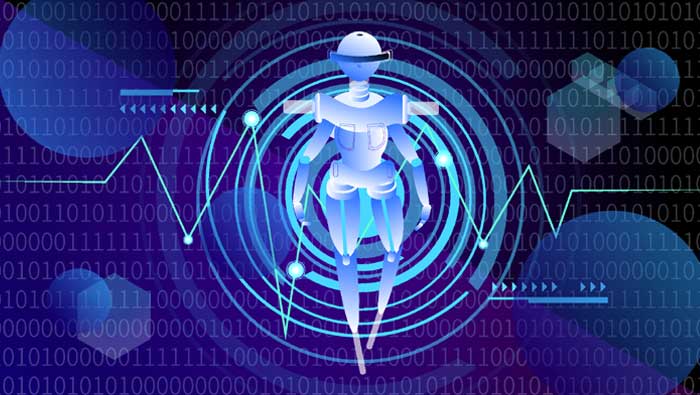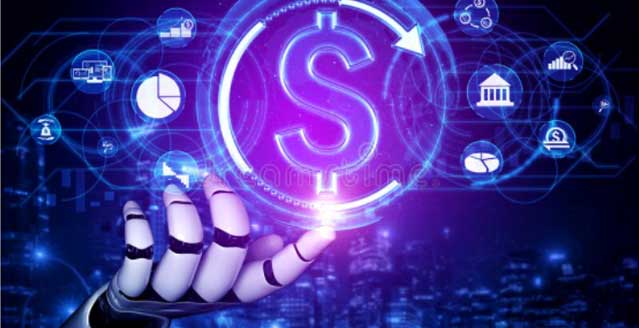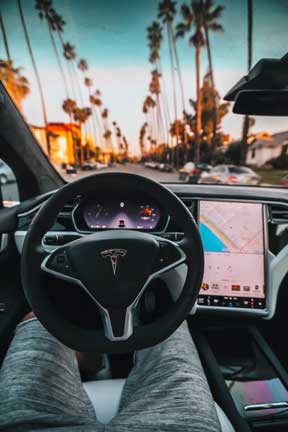Artificial Intelligence (AI) is a technology that attempts to emulate human intelligence. It can be used for many purposes, such as voice recognition and text understanding. AI has become very popular these days, which has made its use in the real world very important. This article will provide an overview of some of the best examples of AI applications.
Artificial Intelligence Real-World Examples
Contents
What is Artificial Intelligence Used For?
Artificial Intelligence Applications in Marketing
Artificial Intelligence Applications in Banking and Finance
Artificial Intelligence Applications in Health Care
Artificial Intelligence Applications in Gaming
Artificial Intelligence Applications in Autonomous Vehicles
Artificial Intelligence Applications in Cyber Security Space
Artificial Intelligence Applications in Chatbots
Artificial Intelligence Applications in Speech Recognition
Artificial Intelligence Applications in Email
What is Artificial Intelligence Used For?
Artificial intelligence is a field of computer science that deals with the simulation of intelligent behavior in machines. A computer is often considered to be intelligent if it can perform tasks that require human intelligence, such as visual perception, speech recognition, learning, and problem-solving.
Artificial intelligence is also called machine learning or deep learning. It is classified as a subfield of computer science. It focuses on studying systems that have intelligence. However, its use in the real world is no longer limited exclusively to machines.
Artificial Intelligence Applications make it possible for any machine or device with an electronic component to emulate human behavior. The behaviors like learning and decision making instead of just responding according to preset rules or making decisions based upon a previous experience which are difficult (if not impossible) tasks usually reserved for humans only.
Artificial Intelligence Applications in Marketing
Artificial Intelligence has become a great help in marketing, both for companies and customers. It can provide significant insights into the users’ behavior, thus helping businesses better understand their customers and their needs. This will help them to design better products and services. Therefore, the use of AI in marketing is expected to grow exponentially in the coming years.
Netflix uses an intelligent implementation of AI technologies in its recommendations to improve user experience and build better products. For example, the company has implemented an algorithm to understand users’ preferences to create different content types. Based on this data, they recommend their customers with updated lists of recommended movies and TV shows matching up with them. These technologies have improved Netflix’s service delivery and improved customer satisfaction rates and revenue through more personalized campaigns.
Interestingly, a simple concept like reordering a pizza with AI can benefit user experience and revenue. This concept was implemented successfully by Domino’s Pizza Dallas (yes, the company that sells pizzas is also a technology business). They were able to find out how many times customers order individual pies. They find it essential to predict what the customers are going to order. As a result, they can optimize their delivery costs and deliver faster pizzas, so that customer experience is improved as well.
Artificial Intelligence Applications in Banking and Finance
Artificial Intelligence is the future of banking and finance. AI has the potential to improve the efficiency of banks and financial institutions by improving processes, increasing customer satisfaction, reducing costs, and streamlining decision-making. AI is already being used in several areas within banking and finance. For example, it can be used to improve customer service, help financial institutions understand their customers better, automate certain processes, and even help predict credit risk.
Further, AI can be utilized for fraud detection, credit risk management, automated underwriting, pricing, trading, market research, and data analysis for better decision accuracy.
As you can see, banks face many challenges with AI, the foremost being integrating it into current practices without disrupting the business process or other negative ramifications. Another concern is cybersecurity, protecting confidential information from hacking attacks such as the availability of sensitive personal data online.
AI has also been a key player in digitizing banking products by eliminating manual work involved while meeting regulatory requirements across geographies.
An August 2018 research report has found that customer experience could be the key to making AI relevant in banking and finance, while it was seen as a tool for data entry and interpretation before. These evolved toward providing advisory services like portfolio management, compliance reporting, or servicing of account balances, debit cards, etc.
E-Payments is another example of AI usage in banking and finance. Artificial Intelligence can help safeguard your payments on a global scale, personalize your payment experience and improve efficiency. An automated system allows payments to happen without the need for the approval of an individual by handling complex procedural rules.
It functions based on easily integrated models that define promise payability criteria. In contrast, artificial intelligence machines automatically execute transaction tasks hereunder application guidelines.
Artificial Intelligence Applications in Health Care
Artificial Intelligence (AI) is a term that has been widely used in the healthcare industry. It is a technology that can be used to automate many different processes, including diagnosis, patient management, healthcare provision, and more. AI can automate tasks and free up staff to focus on patient care.
AI is not just limited to a computer taking on the role of a doctor. Still, it is also making life easier for doctors. Artificial Intelligence can make medical diagnosis more accurate, and the process can be done in real-time. Today’s procedures in AI require that an algorithm be created before medical data can be used. An artificial intelligence system is best when there are many doctors. It becomes easier for most to pick up on signs of a problem and diagnose patients ahead of the others.
Early prediction of future consumption is a significant application of artificial intelligence systems in the medical field. For example, in 2008, researchers developed an AI system that made good predictions about diet and health based on individuals’ behavioral patterns. As a result, it aided increase weight loss among people who would otherwise be at risk for diverse ailments.
The first advanced applications were command management during time-outs from heavily automated implants such as pacemakers or heart defibrillators was developed.
These systems could diagnose irregularities and initiate corrective action autonomously before regular doctors had even the diagnosis available for review (due in part to AI’s ability with pattern detection).
Myriad uses of artificial intelligence applications in medicine: AI will take on roles and be suitable for many internal settings. That is why it was created to help people function more professionally.
These automated diagnostic devices are used within a robotically controlled environment (allowing greater medical input), where humanized entry might be required for an exceptional case.
Artificial Intelligence Applications in Gaming

Artificial Intelligence is used to create highly engaging, unique, and immersive gaming experiences. AI can generate a variety of characters, including different characters with exceptional skills, personalities, and interactions. It can also be used to create realistic graphics and environments.
AI is also used to develop dynamic player progression systems that can create opportunities for players to advance their characters and acquire new skills. Therefore, it is essential for these systems to be built on a foundation of viable game mechanics that can contribute to dynamic gameplay. Examples are significant in the industry today, including Fortnite’s Battle Royale game mode, League of Legends statistical models (which powered runes and masteries), etc.
These AI systems function as intelligent bots that can listen intently to players, often following them around during conversations or targeting specific individuals for more information about their skills and behavior. They also make decisions on how best to act toward multiple people at once because of their advanced ability to apply common sense and analytical thinking.
Artificial Intelligence Applications in Autonomous Vehicles
Autonomous vehicles have been the focus of much research and development. Most of the current autonomous vehicles use artificial intelligence to make decisions. The decision-making process is complex and requires a lot of data. The data collected is fed into an algorithm that produces a decision.
An autonomous vehicle needs to make many decisions to function effectively. These decisions may be about moving from point A to point B, handling pedestrians and other obstacles, reacting if it encounters a situation it has never experienced in training and operating its own controls.
In addition, an innovative decision-making process is needed for highly complex environments like unlighted streets during the night or curved roads with obstacle blind spots.
In 2015, Daimler (now folded back into parent company BMW) released Autonomous Driving V1. This first autonomous car can drive itself on available daylight at speeds up to 130 km/h (80 mph), and in 2016 they announced a Long-Term goal of commercializing it by the end of 2018.
In 2025, the company predicts that automated vehicles will be ubiquitous on congested urban roads where typical compliance levels are now between 50% to 80%.
However, the Tesla automatic car constructed images of street scenes in 3-D and then used those newly acquired details to drive safely. In addition, the tesla car now provides Autopilot features and full self-driving capabilities, which are available for users to try through their web browser. The vehicle can even detect cyclists and surrounding obstacles such as pedestrians without fail in both clear weather conditions (with a bright sky) as well rain or snow.
Artificial Intelligence Applications in Cyber Security Space
Artificial intelligence is widely used in various fields. Cyber security is one of the most important areas where AI is used. Cyber security is becoming a huge issue, and AI can be used to protect your information and make it more secure.
Artificial intelligence can improve vulnerability management capabilities. AI is able to identify vulnerabilities in a system in real-time and automatically apply countermeasures to protect it. It can also identify vulnerable data sources and even change the way they are used. Thus, AI helps protect critical systems from malicious attacks. For example, tools like Cloudlock raise the alarm if there is a small amount of unusual activity in the cloud, like having only 127 terabytes saved on Amazon Glacier. In addition, AI can find new problems before they occur and suggest mitigation strategies to fix them!
Artificial intelligence is one of the best real-world examples of how it can help improve threat hunting capabilities in Cyber Security. AI can help analyze large volumes of data and build a profile of the threat. It can then use that profile to identify the threat, including any malicious code or malicious activity on a network. It can also be utilized to hunt for other threats within the network, which can help organizations to identify weaknesses in their security architecture.
Artificial intelligence can improve network security by automatically analyzing network traffic and identifying the highest risk devices and applications, like those carrying malicious code. AI can also monitor network traffic for suspicious activity, such as unusual web browsing or communication, and warn IT administrators about it. This can help identify compromised devices or networks before they are attacked.
Artificial Intelligence Applications in Chatbots
The application of artificial intelligence in chatbots is one of the most talked-about topics in recent times. Chatbots are the next big thing in the field of artificial intelligence.
Chatbots are more than just a simple messaging application. Chatbots can do more than just send text messages or emails. They can provide the user with information, advice, and entertainment on the internet.
While chatbots have already been deployed to a wide range of fields, their role is not limited to just marketing and commerce. Chatbots can provide information, entertainment, and advice to end-users from a wide range of subjects. For example, Chatbots can be used by companies such as banks that offer legal services at certain times. Also, Internet providers like T-Mobile help their customers with technical issues related to their internet bandwidth usage through chatbot technology.
Further, some of the chatbots in tech today are by far better than any others. These ones that manage to do stuff that is usually very difficult to be programmed or solved continue to amaze us and the general public. Moreover, although they lack intelligence like human beings, these machines have a lot more database capacity and storage space than an average person from 20 years back.
Artificial Intelligence Applications in Speech Recognition
Speech recognition is one of the most critical areas of artificial intelligence research. Speech recognition has the potential to transform our lives in many ways. For example, it will allow us to communicate with computers using only our voice.
The ability to understand speech is not limited to only humans and computers; it is being used by a wide range of devices and systems, including computers, robots, cars, mobile phones, appliances, software, and even household devices.
The concept of speech recognition is to convert human speech into computer text, which a computer understands. Speech recognition systems are helpful for natural language processing and computer-aided transcription. In addition, they are used in applications such as voice commands, speech synthesis, and speech recognition software. For example, we can use speech recognition to recognize the name of a song from an album or use it on computers for music generation.
Also, systems like Vehicle assisted driving and Mobile robots have voice recognition as an essential application.
Artificial Intelligence Applications in Email
Artificial Intelligence applications have been used in Gmail and Yahoo. In a recent study, the researchers at Google and Yahoo have used artificial intelligence to analyze the emails sent by their users. This study aimed to identify words and phrases that are commonly used in emails. The study found that the exact phrase is used repeatedly in emails. This is a great help for both email users and email service providers. It helps them improve their email services by detecting common phrases in emails.
How does Gmail use Artificial Intelligence?
Gmail is one of the best examples of how Artificial Intelligence is used in the real world. Gmail uses AI to personalize your email experience. It learns your habits and patterns and then recommends what you should read next, based on the content of your emails.
Gmail uses AI for Spam detection:
Gmail uses artificial intelligence to detect spam. Gmail uses a variety of techniques to identify spam. For example, Gmail checks for email addresses known to be used for spam or associated with other types of email abuse. If it detects an email address in the body of an email message that it has seen before, it marks the message as spam.
AI for Bifurcation of emails:
Google is one of the best examples of Artificial Intelligence and its use in everyday life. Google uses Artificial Intelligence to bifurcate emails. Bifurcation helps you to separate your emails from different people. For example, suppose you are writing an email to your boss. In that case, it will automatically bifurcate the email and send it to your boss and other people. They are in the same group as your boss. This helps you save time and avoid confusion when you are sending the email.
AI for Text prediction while writing emails:
Google uses artificial intelligence for its text prediction feature. The predictive text feature in Gmail helps you write emails faster and with fewer typos. Gmail uses a machine-learning algorithm to learn from your email writing patterns. The algorithm is trained to predict words that you may want to use in the future. It also suggests other words that might be relevant to the context of your email. The prediction feature in Gmail is powered by a particular neural network, which learns from examples and can also be customized according to your writing patterns.
Auto-reply detection:
This is an example of how Gmail uses Artificial Intelligence for Auto-reply detection. Gmail uses artificial intelligence to detect when you are typing an email and automatically creates a message for you. It also includes some of the features like Smart Reply, which helps you choose the best possible reply to a message.













0 Comments